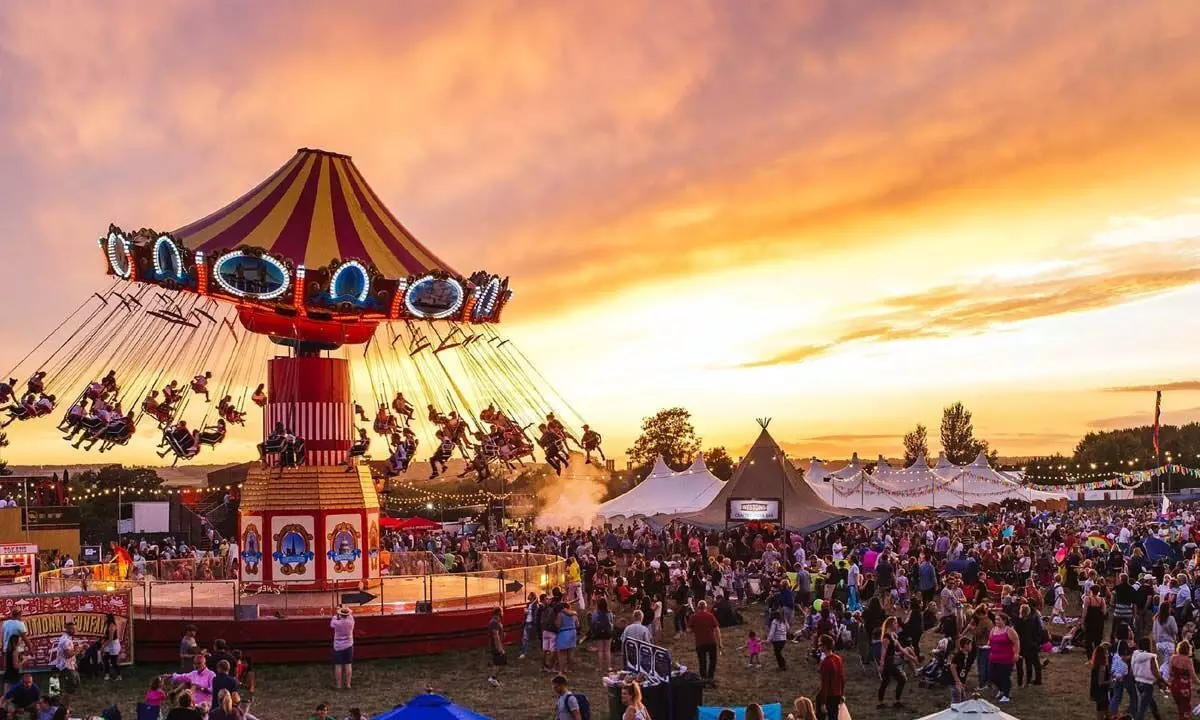Understanding the impact of festivals on local economy
The festival season is already here. And in India, the September-November festive season has a decisive impact on the economy because it drives up consumption and acts as a bellwether for the year ahead.
image for illustrative purpose

The festival season is already here. And in India, the September-November festive season has a decisive impact on the economy because it drives up consumption and acts as a bellwether for the year ahead. During the last two years, the festival spirit was not as high as it is this time round, thanks to the pandemic and the fear of resurfacing of the pandemic. While for larger parts of the country, festival spirits are palpable around the Diwali, in Bengal, it starts with the Durga Puja. With the Durga Puja having been inscribed on the UNESCO representative list of intangible cultural heritage of humanity little wonder that the Bengal government has gone gung ho about the Durga Puja celebration and the carnival. Bengal Chief Minister Mamata Banerjee often comes in for a flak by her political detractors for her excessive focus and over-enthusiasm over fairs, festivals and festivities. While her bete noires have their own logic and arguments, one should not forget that annual community festivals have impacts on their surrounding communities and residents. These communities continue to benefit from the economic impacts after the festivals.
The economic benefits of festivals are easiest to see and most often cited - festivals attract visitors, which stimulate the growth of tourism and other businesses in a town or region. The social benefits of festivals are less visible, but they are just as important. It's fair to say that festivals foster community pride, teach people new things, and strengthen relationships. Events, fairs and festival tourism are one of the fastest growing forms of tourism. It is becoming increasingly popular in rural areas as a means to revitalise local economies. Let's for a moment, forget about the political reasoning and verbose, and focus on the pure economic impacts of the community festivals.
The key direct economic impact: Direct injections of 'new' money into the community.
Direct expenditure: All expenditures that festival visitors incur related to the event.
Indirect impact: Additional input purchases made by local businesses as a result of the direct impact.
Induced Impact: It is created when local business owners, suppliers, and employees spend the additional income that they earned as a result of the direct and induced impacts.
Multiplier effect: The number of times a rupee "changes hands" before leaving the community, which in economic parlance, reflects velocity of circulation of money.
Mind you that tourism is an industry that contributes significantly not only to a community, but to the national economy as well. This is because a wide range of business sectors are being impacted and the event has the possibility of impacting employment and payroll incomes. The employment and payroll incomes have the potential to impact the Central, State, and local governments in the form of taxes.
Quite significantly, festivals also provide free marketing and advertising for local businesses as visitors talk about their fun experiences when they go back home. When visitors post comments and photos about their experiences on Facebook or other social media, it creates publicity of the event. The economic benefits of successful festivals ripple throughout a local economy - affecting tourism and non-tourism-related businesses alike. The fixed length of such festivals encourages visitors to attend; often attracting new visitors that would otherwise not experience that particular region. This extra exposure acts as an indirect form of marketing for the region as a whole, offering an opportunity to reach a previously untapped market. These new tourists bring with them new money, further diversifying the market and subsequently increasing both real and potential revenue generation. The only rider in this whole thing is: 'if done properly- in a well structured, well planned manner'. You like her ways or not, there is a method in Mamata's madness!

